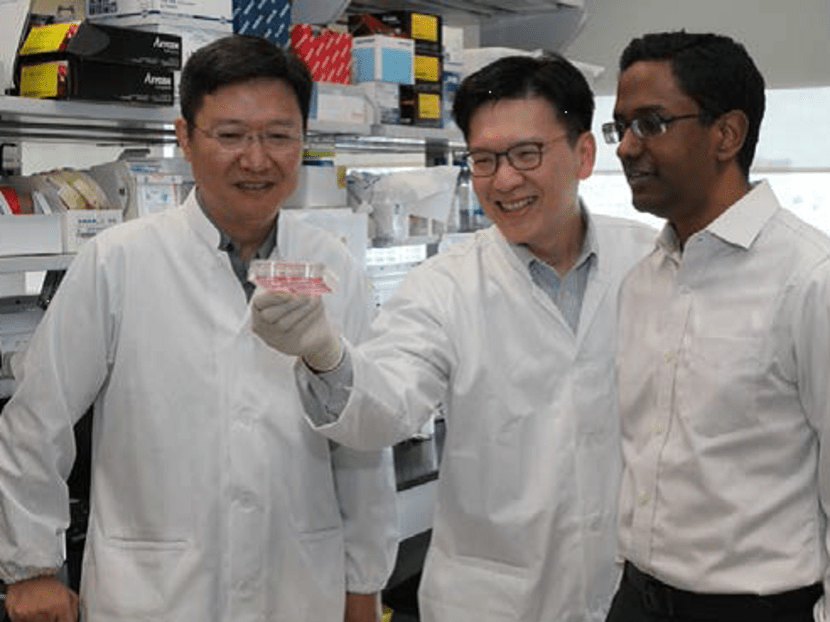Singapore researchers devise way to test potential drug side effects using stem cells
SINGAPORE — Researchers here have come up with a new way to test a patient’s reaction to a drug even before it is administered.

Researchers from the Institute of Bioengineering and Nanotechnology and the National Cancer Centre Singapore who discovered the approach of using patients’ stem cells to test for side effects of drugs. From left: Prof Hanry Yu, Dr Min-Han Tan and Dr Ravindran Kanesvaran. Photo: Institute of Bioengineering and Nanotechnology
SINGAPORE — Researchers here have come up with a new way to test a patient’s reaction to a drug even before it is administered.
By first testing a drug on stem cells made from from the patient’s blood, scientists from the Institute of Bioengineering and Nanotechnology (IBN) of A*STAR and the National Cancer Centre Singapore (NCCS) have found that doctors may screen for possible side effects to drugs..
This, the IBN said, can help create personalised medicine for every individual and “improve healthcare and treatment outcome”.
Revealing its research findings on Tuesday (Feb 28), A*STAR said it had tested this concept on five kidney cancer patients who had previously been exposed to the cancer drug pazopanib.
Based on their medical history, three of the five patients had displayed adverse reactions to pazopanib in the past.
The researchers used stem cells from the five patients to create liver cells that were then exposed to pazopanib. The study found that the effects of pazopanib on the newly created liver cells tallied with how each of them had previously reacted to the drug.
Furthermore, for those who suffered adverse reactions, the researchers were also able to analyse how pazopanib caused liver damage to them, which was previously unknown to doctors even after many years of using the drug.
“This study is the first proof-of-concept that our approach can predict drug-induced liver damage for an individual,” said principal research scientist Dr Tan Min-Han. “Now that we know how the drug works, we can introduce another agent/drug to combat the side effect. It’s like selecting the correct antidote. That’s the next step, to be tested in clinical trials at NCCS.”
Fellow researcher Dr Ravindran Kanesvaran said: “We are very excited that this study demonstrates an approach that could transform how drug toxicities are evaluated. It also sheds light on the mechanism of a particular side effect of pazopanib, which may lead to ways to overcome it.”
The research team said it will conduct further studies on drugs that affect other types of organs, and hope to work with industry partners to commercialise the technology.
IBN’s executive director Jackie Y Ying said: “Adverse side effects from drugs are a major clinical concern, which could and should be preventable... We are confident that our personalised stem cell technology will be of significant clinical value,” said.
According to a study published in 2016, 8.1 per cent of all hospital admissions in Singapore are caused by adverse drug reactions. The study also found that patients suffering from adverse drug reactions also tend to be hospitalised longer than others, while the most common drugs causing adverse reactions were cardiovascular drugs.






